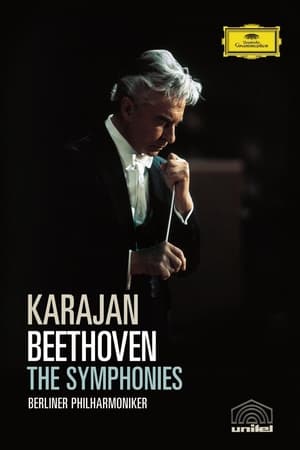
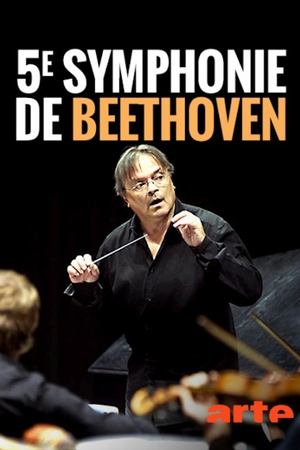
Beethoven - Symphonie n°5(2009)


Movie: Beethoven - Symphonie n°5

Beethoven - Symphonie n°5
HomePage
Overview
Release Date
2009-09-15
Average
0
Rating:
0.0 startsTagline
Genres
Languages:
Keywords
Similar Movies
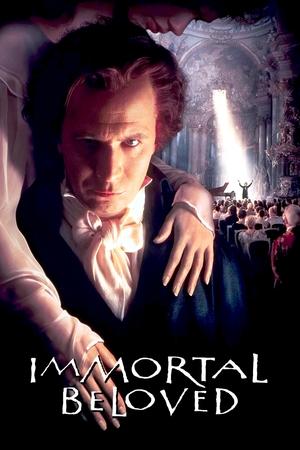 7.1
7.1Immortal Beloved(en)
A chronicle of the life of infamous classical composer Ludwig van Beethoven and his painful struggle with hearing loss. Following Beethoven's death in 1827, his assistant, Schindler, searches for an elusive woman referred to in the composer's love letters as "immortal beloved." As Schindler solves the mystery, a series of flashbacks reveal Beethoven's transformation from passionate young man to troubled musical genius.
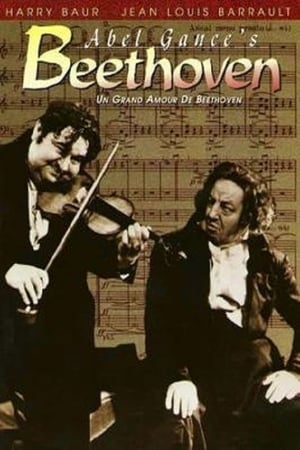 6.9
6.9The Life and Loves of Beethoven(fr)
Lyrical biography of the classical composer, depicted as a romantic hero, an accursed artist.
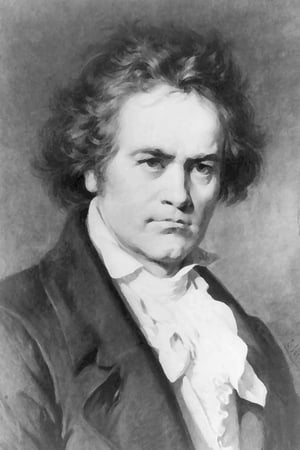 9.0
9.0Beethoven: Symphony 9 by Riccardo Muti(en)
Experience what Zell Music Director Riccardo Muti calls “the work of a divine architect” in this special encore presentation of Beethoven’s Ninth Symphony. Recorded live September 18, 2014, at Orchestra Hall during one of the opening programs of the Chicago Symphony Orchestra’s 2014/15 season, this performance features Muti leading the Orchestra and Chorus and distinguished soloists in one of history’s most powerful and inspiring artistic works. A masterpiece whose staggering influence can be seen across classical music, it concludes with the famous Ode to Joy, which calls for understanding, peace and universal goodwill. The Chicago Symphony Orchestra is grateful to an anonymous donor for generously underwriting the recording of this concert in 2014.
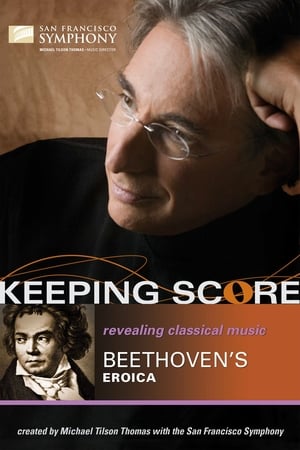 10.0
10.0Keeping Score: Beethoven's Eroica(en)
Beethoven spent three years composing the Eroica, an intimate journal of his emotional crises and his dramatic emergence as an original master. Michael Tilson Thomas and the musicians of the San Francisco Symphony help you make sense of this voyage into life as it really is.
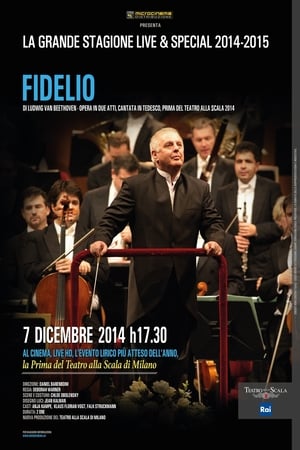 0.0
0.0Beethoven · Fidelio(de)
A tribute to marriage coming from a bachelor is a tad suspicious. But for Beethoven the idealization of the woman-bride was heartfelt and sincere. It has always been a unique opera starring a courageous wife who wows audiences. Fidelio is a moral title, associated with the ideals of liberty of the French Enlightenment. Nobility and commoners are united in their thirst for justice against the oppression of power. For once the faithful consort of a desaparecido wins her battle against a treacherous tyrant, and the collective joy truly is “nameless”, as is sung on the stage. Especially because the “our heroes to the rescue” finale is recounted by the triumphant symphonic flair of the quintessential musician. Beethoven really does bring the world to collapse at the conclusion of this opera, which begins like a delightful little comedy, but which scales and transcends all the summits of the dramatic-musical art.
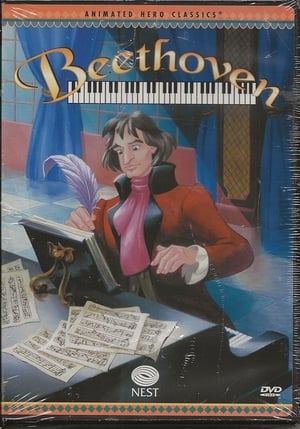 0.0
0.0Animated Hero Classics: Beethoven(en)
Even as a young boy, Beethoven marched to the beat of a different drummer. Trained in the traditional music methods by his father, Beethoven was an accomplished pianist by the age of 12. But he yearned to try new sounds and persevered until audiences heard his music. By his early twenties, this persistent young man performed for Joseph Haydn, who compared him to the great Mozart. Sadly, Beethoven began to lose his hearing, but he threw himself even more deeply into his music, composing "Fur Elise," "Sonata Pathetique" and the dramatic "Fifth Symphony" years later, audience members heard what he could not and leapt to their feet in ecstatic appreciation for such passionate music. His creativity gave the world then, as it does today, music that stirs the soul. The video begins in 1827 with 30,000 people paying tribute to the great Beethoven in Vienna, Austria. Then the video switches to his life as a child...
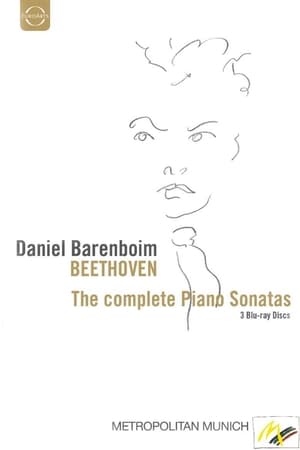 9.0
9.0Beethoven: The Complete Piano Sonatas(en)
In this recording, seven-time GRAMMY® Award-winning pianist and conductor Daniel Barenboim tackles the so-called 'New Testament' of music, Ludwig van Beethoven's thirty-two piano sonatas, composed over twenty-five years and embodying the shift of musical taste from the Classic to the Romantic, their performance requires a musician of extraordinary versatility. Daniel Barenboim is one such pianist his recordings run the gamut from Bach and Mozart to Bruckner and Bartók.
 6.5
6.5Daniel Barenboim: Beethoven - Piano Concertos 1-5(en)
If Daniel Barenboim is not the world's greatest living classical musician he is certainly the most versatile. In a career spanning more than 50 years, his name is attached to many of the celebrated recordings of opera, symphony, small ensemble and piano solo. With the later half of his career marked by distinction at the podium, one may forget that he is still an accomplished concert pianist. Here we are treated to both talents as Barenboim conducts the Staatskapelle Berlin and plays all five of Beethoven's piano concerti. From the accompanying booklet we find that Barenboim first recorded these works in 1967 at the age of 24 under Otto Klemperer. Now he is revisiting them 40 years later on the occasion of his 65th birthday.
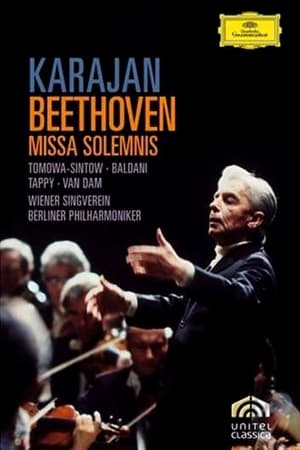 9.0
9.0Beethoven · Missa Solemnis (Berliner Philharmoniker, Herbert von Karajan)(de)
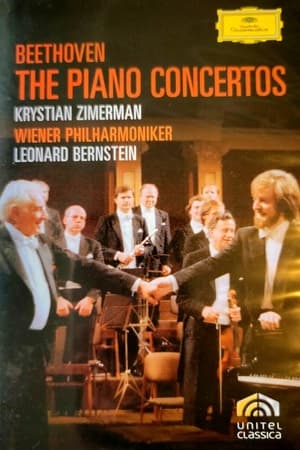 0.0
0.0Beethoven: The Piano Concertos(en)
Leonard Bernstein filmed Piano Concertos 3, 4, and 5 in 1989, but did not live to film the first two. He died in 1990. So Krystian Zimerman, the pianist, paid tribute to Bernstein and rounded out the set in 1991 by both playing and conducting Concertos 1 and 2.
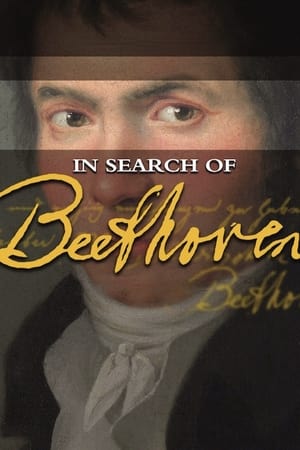 6.2
6.2In Search of Beethoven(en)
In Search of Beethoven offers a comprehensive documentary about the life and works of the great composer. Over 65 performances by the world's finest musicians were recorded and 100 interviews conducted in the making of this beautifully crafted film. Eleven interviews are included in the Extras and Six complete movements.
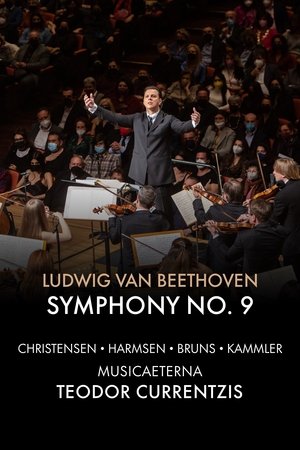 10.0
10.0Currentzis conducts Beethoven Symphony No. 9(de)
Ludwig van Beethoven headed for Symphony No. 9 literally his entire life. As early as the 1790s, he had an eye on Ode to Joy, perhaps the most well-known poem by Friedrich Schiller, written on the threshold of the French Revolution (1786). In his mature and, in particular, later years, the deaf composer with an acute ‘hearing vision’ increasingly distanced himself from conventional forms and genres and wrote parts beyond the possibilities of instruments of his day. He nurtured the idea of a symphony with a choir for at least several years. The history of the Ninth’s interpretations includes 200 years of staggering revelations and lingering stagnation. Performed by the musicAeterna orchestra, choir, and guest soloists under the baton of Teodor Currentzis, Beethoven’s opus magnum acquires the original poignancy and energy of a recent discovery.
 7.0
7.0Khatia Buniatishvili and Zubin Mehta: Liszt & Beethoven(de)
Vivaldi, Mozart, and Beethoven serve up an evening of glittering virtuosity and transcendent melody in this unusual, all-concerto program. Filmed at Tel Aviv’s Mann Auditorium in July 2015. Zubin Mehta leads the Israel Philharmonic Orchestra as they accompany three very different 18th-century concertos performed respectively by trumpeters Ram Oren and Yigal Meltzer, clarinettist Ron Selka, and pianist Khatia Buniatishvili. Set-List: Antonio Vivaldi, Concerto for 2 Trumpets in C Major, RV 537 / Wolfgang Amadeus Mozart, Clarinet Concerto in A Major, K. 622 / Ludwig van Beethoven, Piano Concerto No. 1 in C Major, Op. 15.
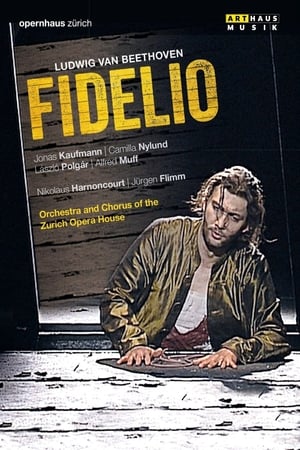 0.0
0.0Beethoven - Fidelio (Zurich 2004)(en)
Nikolaus Harnoncourt is the conductor in this 2004 production of Beethoven's only opera staged at the Zurich Opera House. Finnish soprano Camilla Nyland takes the title role, with performances by Jonas Kaufmann, Laszlo Polgar and Alfred Muff.
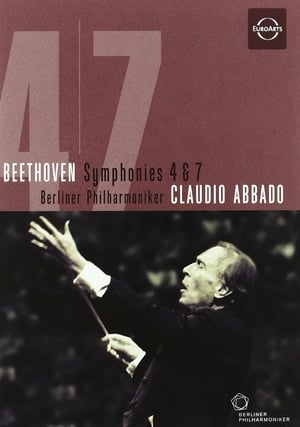 0.0
0.0Beethoven Symphonies Nos. 4 & 7(en)
Claudio Abbado conducted Beethoven’s symphonies on many occasions in the Philharmonie in Berlin. But only at the end of his tenure as chief conductor of the Berliner Philharmoniker did he decide to give a performance of the complete symphonies. It was left to audiences of his native Italy to witness these concerts in February 2001 in the Accademia Nazionale di Santa Cecilia in Rome.
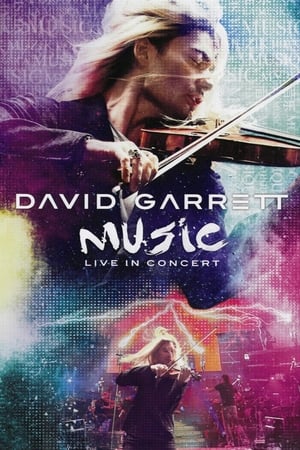 6.5
6.5David Garrett - Music - Live in Concert(en)
Watch David’s successful concert in Hanover from April 2012.
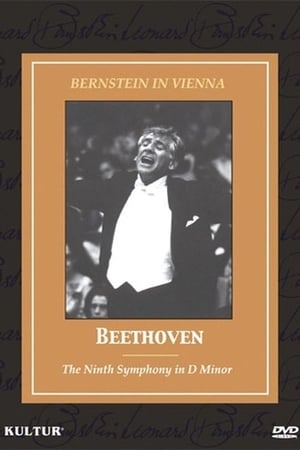 0.0
0.0Bernstein in Vienna: Beethoven, The Ninth Symphony(en)
To play Beethoven's music is to give oneself over completely to the child-spirit which lived in that grim, awkward, violent man. Without that utter submission it is impossible to play the Adagio of the Ninth. Or, Heaven knows, the first movement. And the Finale? Most of all! It is simply unplayable unless we go all the way with him, as he cries out "Brüder!" - Leonard Bernstein
 0.0
0.0Beethoven's Birthday: A Celebration in Vienna with Leonard Bernstein(en)
In this documentary portrait prepared for the anniversary of Ludwig Van Beethoven's 200th birthday, Leonard Bernstein illustrates his analysis with excerpts from his performances of Beethoven's Piano Concerto No. 1 in C Major and the Ode to Joy from the Ninth Symphony.
 10.0
10.0Bernstein In Vienna: Beethoven, Piano Concerto No. 1 in C Major(en)
In Vienna's Musikverein, Leonard Bernstein and the Vienna Philharmonic celebrates Ludwig Van Beethoven's 200th birthday with a joyful performance of his Piano Concerto No. 1 in C Major. Maestro Bernstein conducts the orchestra from the keyboard in this historic concert.
